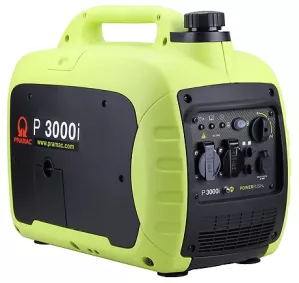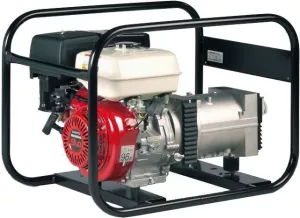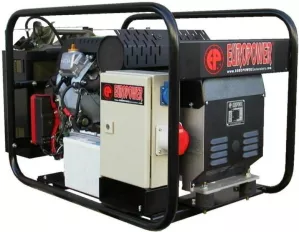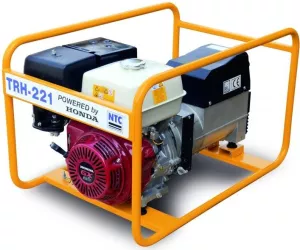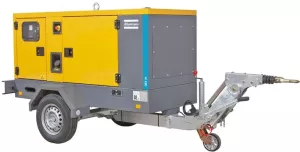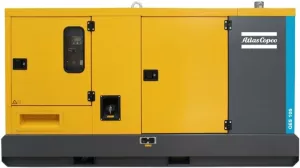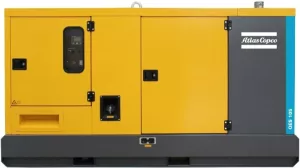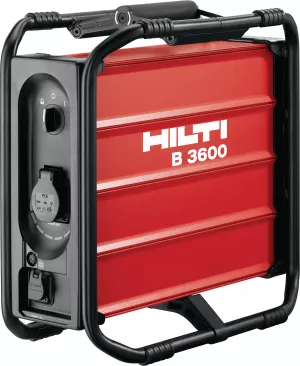Generator – a practical guide to choosing an off-grid energy source
Nowadays, when we increasingly encounter the need for temporary or backup power, a power generator, or generator, is becoming an invaluable helper. Whether it is reconstruction, construction work, outdoor events or providing energy in places without access to the electrical grid - a power generator is the solution.
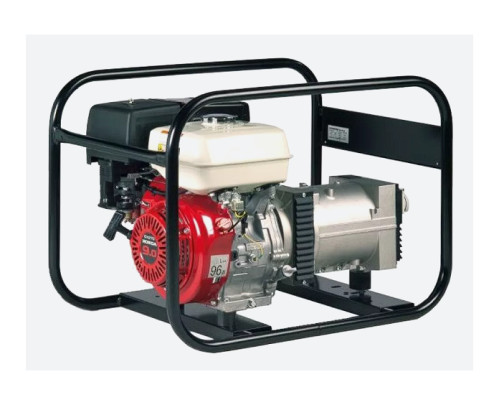
Generator – a practical guide to choosing an off-grid energy source
Nowadays, when we increasingly encounter the need for temporary or backup power supply, a power generator, or generator, becomes an invaluable aid. Whether it's for renovations, construction work, outdoor events, or providing power in places without access to the electrical grid, a power generator is the solution.
Types of power generators – what's the difference between them?
When choosing a generator, it is important to know which type is right for you. Here are the basic options:
1. Gasoline generators
- Suitable for short-term use
- Lower purchase price
- Easy maintenance
- Higher noise and fuel consumption
2. Diesel generators
- Ideal for long-term and demanding use
- Higher reliability and service life
- Lower fuel consumption
- Higher weight and price
3. Inverter generators
- Quiet operation and compact dimensions
- Stable voltage suitable for sensitive electronics
- High efficiency at lower loads
- Ideal as small generators for households, caravans, or backup power supplies
4. Solar generators
- Eco-friendly solution with no emissions
- Low operating costs
- Limited instantaneous power and dependence on sunlight
- Suitable for low-energy applications
What to focus on when choosing a generator?
When choosing the right type of power generator, several key factors need to be considered:
- Performance parameters – consider what devices you will be powering. A lower-power generator is sufficient for smaller appliances, but for large machines or demanding applications, you will need a powerful generator, e.g. a 5kVA generator is suitable for powering multiple devices at once (pumps, cutting saws, lighting, heating)
- Noise level – if you will be using the generator in residential areas or at outdoor events, you should take the noise level into account.
- Fuel consumption – consider operating costs, which vary depending on the type of generator.
- Mobility – wheels, handles, and weight (especially for frequent moving)
- Voltage regulation method – inverter generators provide stable voltage without fluctuations
Generator power and its impact on use
The power of the generator determines what devices can be powered:
- Up to 2 kVA – lighting, laptops, small appliances
- 2–5 kVA – suitable for powering pumps, cutting saws, and other power tools
- Over 5 kVA – ideal for backup power for heating or larger construction machinery
For example, a 5 kVA generator can easily power a combination of pumps, lighting, and power tools on a construction site.
Combustion vs. solar generators: Which one to choose?
When deciding between combustion and solar generators, it is important to consider what type of power you need. Each of these types has its own advantages and limitations that are suitable for different situations.
So let's take a look at what makes each of these generators unique.
Combustion generators
- Performance: They provide instant and high performance, ideal for demanding tasks such as large construction machinery.
- Fuel consumption fuel: They require more fuel, which increases operating costs.
- Noise: They are noisier, which can be a problem in residential areas.
- Suitable for demanding applications: They are used where stable performance is required.
Solar power generators
- Environmentally friendly: They use solar energy and produce no emissions.
- Performance: They are suitable for low energy demands, such as lighting and small appliances.
- Limited performance: They depend on weather and sunlight, which can affect their efficiency on cloudy days.
- Low operating costs: The initial investment is higher, but operation is very inexpensive.
Which generator should you choose?
If you need high power and reliable power for demanding tasks, such as large construction machinery or heavy electrical equipment, a combustion generator is the ideal choice. If you are looking for an environmentally friendly solution that is quiet and suitable for small applications with low energy requirements, a solar generator is a great choice.
Ramirent's range of generators
At Ramirent, we offer a wide range of power generators for rent – from small inverter models to powerful diesel models. You can choose, check availability, and reserve a generator online on our website. We will be happy to advise you on the ideal solution for your needs.
Here is a brief overview of the available options:
Inverter power generators
- 2.2 kVA – ideal for sensitive electronics, low noise level
- Price: €24.60 incl. VAT / day
Small single-phase gasoline generators
- Up to 4 kVA – suitable for households, gardens, smaller construction sites
- Price: €23.37 incl. VAT / day
Medium petrol three-phase generators
- 5–10 kVA – suitable for pumps, saws, lighting
- Price: €29.52 incl. VAT / day
- 11–14 kVA – for more demanding applications
- Price: €36.90 incl. VAT / day
- 15–19 kVA – backup power supply for heating, larger machines
- Price: €49.20 incl. VAT / day
Large diesel three-phase generators
- 20–400 kVA – available on request, suitable for industrial use
You may also find other products related to energy, heating, or lighting useful for your generator. Browse our complete range and find everything you need.
